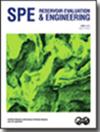Polysulphate: A New Enhanced Oil Recovery Additive to Maximize the Oil Recovery From Carbonate Reservoirs at High Temperature
IF 1.5
4区 工程技术
Q3 ENERGY & FUELS
引用次数: 0
Abstract
Seawater (SW) injection is an enhanced oil recovery (EOR) success in the North Sea carbonate reservoirs due to wettability alteration toward a more water-wet state. This process is triggered by the difference in composition between injection and formation water (FW). “Smartwater” with optimized ionic composition can easily be made under laboratory conditions to improve oil recovery beyond that of SW. However, in the field, its preparation may require specific water treatment processes, e.g., desalination, nanofiltration, or addition of specific salts. In this work, a naturally occurring salt called Polysulphate (PS) is investigated as an additive to produce smartwater. Outcrop chalk from Stevns Klint (SK), consisting of 98% biogenic CaCO3, was used to investigate the potential and efficiency of the PS brines to alter wettability in chalk. The solubility of PS in SW and deionized water, and brine stability at high temperatures were measured. Energy dispersive X-ray and ion chromatography were used to determine the composition of the PS salt and EOR solutions, and to evaluate the sulphate adsorption on the chalk surface, a catalyst for the wettability alteration process. Spontaneous imbibition (SI), for evaluating wettability alteration of PS brines into mixed-wet chalk was performed at 90 and 110°C and compared against the recovery performance of FW and SW. The solubility tests showed that the salt was easily soluble in both deionized water and SW with less than 5% solid residue. The deionized PS brine contained sulphate and calcium ion concentrations of 31.5 and 15.2 mM, respectively, and total salinity was 4.9 g/L. This brine composition is very promising for triggering wettability alteration in chalk. The SW PS brine contained 29.6 mM calcium ions and 55.9 mM sulphate ions, and a total salinity of 38.1 g/L. Compared with ordinary SW, this brine has the potential for improved wettability alteration in chalk due to increased sulphate content. Ion chromatography revealed that the sulphate adsorbed when PS brines were flooded through the core, which is an indication that wettability alteration can take place during brine injection. The reactivity was also enhanced by increasing the temperature from 25 to 90°C. Finally, the oil recovery tests by SI showed that PS brines were capable of inducing wettability alteration, improving oil recovery beyond that obtained by FW imbibition. The difference in oil recovery between ordinary SW and SW PS imbibition was smaller due to the already favorable composition of SW. PS brines showed a significant potential for wettability alteration in carbonates and are validated as a potential EOR additive for easy and on-site preparation of smartwater brines for carbonate oil reservoirs. PS salt, added to the EOR solution, provides the essential ions for the wettability alteration process, but further optimization is needed to characterize the optimal mixing ratios, ion compositions, and temperature ranges at which EOR effects can be achieved.聚硫酸盐:一种新的提高采收率添加剂,可在高温下最大限度地提高碳酸盐油藏的采收率
由于北海碳酸盐岩储层的润湿性变化,注入海水(SW)可以提高采收率(EOR)。这一过程是由注入水和地层水(FW)的成分差异引发的。在实验室条件下,可以很容易地制造出具有优化离子组成的“Smartwater”,从而提高原油采收率。然而,在该领域,其制备可能需要特定的水处理工艺,例如,脱盐、纳滤或添加特定的盐。在这项工作中,研究了一种名为聚硫酸盐(PS)的天然盐作为制造智能水的添加剂。来自Stevns Klint (SK)的露头白垩,由98%的生物源CaCO3组成,用于研究PS盐水改变白垩体润湿性的潜力和效率。测定了PS在SW和去离子水中的溶解度和高温下的卤水稳定性。利用能量色散x射线和离子色谱法确定了PS盐和EOR溶液的组成,并评价了硫酸盐在白垩表面的吸附作用,这是润湿性改变过程的催化剂。在90°C和110°C条件下,采用自发渗吸(SI)评价PS盐水在混合湿白垩中的润湿性变化,并与FW和SW的采收率进行了比较。溶解度试验表明,该盐在去离子水和SW中均易溶,固体残留量小于5%。去离子PS卤水的硫酸盐和钙离子浓度分别为31.5和15.2 mM,总盐度为4.9 g/L。这种卤水成分很有希望引发白垩的润湿性变化。SW PS卤水钙离子为29.6 mM,硫酸盐离子为55.9 mM,总盐度为38.1 g/L。与普通SW相比,由于硫酸盐含量的增加,这种盐水有可能改善白垩的润湿性变化。离子色谱分析结果表明,PS盐水注入岩心后,岩心中的硫酸盐被吸附,说明注盐水过程中可能发生润湿性改变。将温度从25℃提高到90℃,反应性也得到增强。最后,SI采油试验表明,PS盐水能够诱导润湿性改变,提高采收率。由于SW已经具有良好的成分,普通SW和SW PS吸胀的原油采收率差异较小。PS卤水在碳酸盐岩中具有显著的润湿性改变潜力,并被证明是一种潜在的提高采收率添加剂,可以在碳酸盐岩油藏中轻松地现场制备智能水卤水。将PS盐添加到提高采收率溶液中,为润湿性改变过程提供必要的离子,但需要进一步优化,以确定最佳的混合比例、离子组成和温度范围,以达到提高采收率的效果。
本文章由计算机程序翻译,如有差异,请以英文原文为准。
求助全文
约1分钟内获得全文
求助全文
来源期刊
CiteScore
5.30
自引率
0.00%
发文量
68
审稿时长
12 months
期刊介绍:
Covers the application of a wide range of topics, including reservoir characterization, geology and geophysics, core analysis, well logging, well testing, reservoir management, enhanced oil recovery, fluid mechanics, performance prediction, reservoir simulation, digital energy, uncertainty/risk assessment, information management, resource and reserve evaluation, portfolio/asset management, project valuation, and petroleum economics.

 求助内容:
求助内容: 应助结果提醒方式:
应助结果提醒方式:


